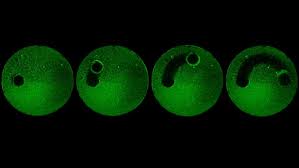
Breaking News
 Sunday FULL SHOW: Newly Released & Verified Epstein Files Confirm Globalists Engaged...
Sunday FULL SHOW: Newly Released & Verified Epstein Files Confirm Globalists Engaged...
 Fans Bash Bad Bunny's 'Boring' Super Bowl Halftime Show, Slam Spanish Language Performan
Fans Bash Bad Bunny's 'Boring' Super Bowl Halftime Show, Slam Spanish Language Performan
 Trump Admin Refuses To Comply With Immigration Court Order
Trump Admin Refuses To Comply With Immigration Court Order
 U.S. Government Takes Control of $400M in Bitcoin, Assets Tied to Helix Mixer
U.S. Government Takes Control of $400M in Bitcoin, Assets Tied to Helix Mixer
Top Tech News
 SpaceX Authorized to Increase High Speed Internet Download Speeds 5X Through 2026
SpaceX Authorized to Increase High Speed Internet Download Speeds 5X Through 2026
 Space AI is the Key to the Technological Singularity
Space AI is the Key to the Technological Singularity
 Velocitor X-1 eVTOL could be beating the traffic in just a year
Velocitor X-1 eVTOL could be beating the traffic in just a year
 Starlink smasher? China claims world's best high-powered microwave weapon
Starlink smasher? China claims world's best high-powered microwave weapon
 Wood scraps turn 'useless' desert sand into concrete
Wood scraps turn 'useless' desert sand into concrete
 Let's Do a Detailed Review of Zorin -- Is This Good for Ex-Windows Users?
Let's Do a Detailed Review of Zorin -- Is This Good for Ex-Windows Users?
 The World's First Sodium-Ion Battery EV Is A Winter Range Monster
The World's First Sodium-Ion Battery EV Is A Winter Range Monster
 China's CATL 5C Battery Breakthrough will Make Most Combustion Engine Vehicles OBSOLETE
China's CATL 5C Battery Breakthrough will Make Most Combustion Engine Vehicles OBSOLETE
 Study Shows Vaporizing E-Waste Makes it Easy to Recover Precious Metals at 13-Times Lower Costs
Study Shows Vaporizing E-Waste Makes it Easy to Recover Precious Metals at 13-Times Lower Costs
The future of dental cleaning? Biofilm-busting micro-robots impress in precision...

An army of tiny robots scuttling about inside your mouth cleaning your teeth. It's a disquieting thought, and yet it might be one of the most effective ways to deal with the sticky bacterial biofilms that coat our choppers – as well as water pipes, catheters and other tough-to-clean items.
Run your tongue around your teeth and enjoy the feeling of the biofilms that are pretty much always coating them. Biofilms are little communities of micro-organisms, bacterial and otherwise, that gather together, sticking their cell walls together and bonding themselves to surfaces in three-dimensional structures, scaffolded together with all sorts of claggy polymers. They've been described as little microbe cities, functioning as tiny co-ordinated communities.
They form all over the place – not just in our mouths as dental plaque, but on your dirty dishes, on rocks, in pipes, surgical equipment, anywhere liquid and microbes meet – and when bacteria gang up in these gloopy films, they can become far more resistant to antibiotics than usual.
And they're tough to break – hence why dentists have to spend so much time scraping away at plaque deposits on your teeth in a fiddly and uncomfortable process that's probably about as much fun for the dentist as it is for the patient.

 Smart dust technology...
Smart dust technology...

